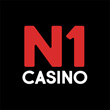In October 2021, Facebook’s CEO, Mark Zuckerberg, once again entered the news cycle. However, instead of his name getting used to boost discourse regarding online privacy issues, his appearance in headlines around the globe, this time, revolved around the world’s top social media platform rebranding itself into Meta. In other words, its expansion into offering a hybrid online experience that can potentially even get projected into the physical world.
The video where Zuckerberg announced Facebook’s evolution into the world of augmented and virtual reality came as a shock to many, despite long-standing rumors dating back to June that this move was already in the books since 2019.
While the buzz generated by Facebook’s potential cyberpunk dystopia got a good chunk of the public curious, many also quickly learned that the metaverse is not a novel concept. Multiple shared spaces that fit this definition already had existed on the World Wide Web powered by blockchain technology, operating for years with vast user pools. Thus, below, we will break down what these open-world virtual reality casinos and platforms are and how metaverse gaming will affect the future of the global gambling industry this year and in those to come.
What is a Metaverse?
Of course, the term metaverse is a portmanteau from the words meta and universe. It first got used in the 1992 sci-fi novel Snow Crash by American writer Neal Stephenson. The book’s story takes place in 21st century Los Angeles, in the decades following a worldwide economic collapse. It presents the Sumerian language as a BIOS for the human brain and introduces several unique concepts that blend ancient history and computer technology.
In today’s modern lexicon, a metaverse refers to a virtual 3D world focused on fostering social connections. The popular online multimedia platform Second Life could get classified as one of the first widespread virtual spaces that featured a platform economy and offered real-world money-making possibilities. At one point, it had more than one million active users, which led to it launching its virtual currency, the Linden Dollar.
Now, most platforms that carry the metaverse label are VR ones that run on the Etherum blockchain, using its ERC-20 standard for their fungible and non-fungible tokens. They let users interact and transact with each other. Facebook’s VR world will implement the ideas laid out and developed in the metaverses running on the Ethereum blockchain.
What Are Some Popular Metaverses?
Currently, without a doubt, the most famous metaverse is Decentraland. It is the brainchild of Argentinians Ari Meilich and Esteban Ordano. The duo began work on it in 2015 before going live with their project in 2017 via an initial coin offering that raised $26 billion. The offering consisted of its creators’ auctioning off plots of virtual land in Decentraland’s Genesis district, which is the size of a digital Washington D.C. At the tail end of 2021, Barbados’ government announced plans to open an embassy in Decentraland.
Other popular metaverses nipping at Decentraland’s heels include Axie Infinity, Somnium Space, and the SandBox. Axie Infinity is an NFT-based game created by Sky Mavis, a Vietnamese game studio. Its gameplay revolves around users collecting, breeding, and battling Pokemon-like creatures called Axies. Released in 2018, it now has over two million daily users.
Somnium Space hit the internet in 2017, and it boasts far more advanced graphics than the competition, putting a substantial focus on its VR element. The SandBox is the blockchain version of the popular mobile game of the same name. It differs from the other metaverses because all of its plots of land are the same size.
Established Metaverse Casinos
As discussed, all the metaverses we rattled off above have self-sustaining economies. They feature fungible tokens that act as money and non-fungible tokens that are plots of land or other forms of unique digital assets. Many users run full-fledged businesses in these Etherum-powered virtual worlds. Hence, it should be no surprise that many metaverse casinos exist on these platforms.
Atari, the video game pioneer, in early-2021, proclaimed that it would open a gaming establishment in Decentraland, in its Vegas City district. It launched its operations in April 2021. It is not the only Decentraland casino. Tominoya Casino is a Japanese-themed venue in this world that boasts two floors with three wings each.
The SandBox has the Sand Vegas Club, an online casino in that metaverse that allows investors to buy its NFTs, which lets them acquire a stake in this establishment and earn a profit share. Everdome is a hyper-realistic metaverse that makes no bones about allowing metaverse gaming spots, and the same applies to Highstreet. Bloktopia is a 21-level virtual skyscraper with a gaming level where users can enjoy poker and a vast array of casino games.
Available Metaverse Gambling Games
While many people likely believe that live dealer games are the pinnacle of authentic remote gaming, that is not so. Metaverse casinos like Tominoya also hire real people to act as dealers. Moreover, they also employ casino hosts that walk around their venues’ floors in shifts, assisting players with their gambling needs. Per some reports, these individuals get paid around $500 a month for their services. Thus, there is no comparison regarding the level of interaction one can get at a metaverse casino, contrasted to the one available at a regular online site.
The games offered at these virtual gaming establishments are also significantly different than what most modern internet gamblers have gotten used to playing. Yes, they supply the standard casino classics like slots, blackjack, baccarat, and roulette, but they also house unique products. Atari’s Decentraland spot lets patrons gamble on games inspired by Atari’s legendary arcade machines. Therefore, the gaming diversity is far more substantial at metaverse locales. They also do not get bottled down with regulations concerning what they can and cannot offer to their customers. They have free reign to meet the market’s demand.
How Metaverse Gambling Transactions Happen
In the past decade, metaverses have gotten intrinsically linked with crypto tech. That especially holds for the Ethereum blockchain. All the platforms discussed above, Decentraland, Axie Infinity, Somnium Space, and the SandBox, use Ethereum’s ERC-20 tokens as the basis for their economy. For example, Decentraland’s native fungible token is MANA, and Axie Infinities is Shards (AXS). These are these virtual world’s counterparts to fiat currencies.
Decentraland’s Atari casino accepts MANA tokens for gaming activities. Yet, it also allows the Decentraland Games’ native token – $DG, Atari’s crypto tokens, and the DAI stable-coin, whose value has gotten pegged to the US dollar.
Since these tokens are available at popular crypto exchanges for conversion and their worth fluctuates, they are no different than standard cryptocurrencies. That means that they are also highly volatile, and one bit of news or speculation can drastically affect their value.
Facebook has had a history of experimenting with creating its blockchain and cryptocurrencies. Their first attempt in this sphere was Libra, which later got renamed and became Diem after scrutiny from the US government. Expectations are that Facebook’s metaverse will utilize crypto technology and perhaps Diem if it gets government clearance in time.
Gambling Regulation for Metaverse Casinos
At the moment, no one is regulating metaverse gaming. These virtual businesses are now reminiscent of the first sets of crypto casinos that appeared online two years after Bitcoin’s inception. They also did not have any regulatory bodies overseeing their activities. That left them to operate on a good faith basis with their clientele. It was not until 2014 rolled around that online gambling regulators like Antillephone took the dive and began supplying licenses to sites that hosted gambling games accepting digital coins.
Metaverse casinos diverge from crypto gaming sites because the former entities exist on the general internet. That is a digital landscape no one can 100% control. Metaverse casinos live inside virtual worlds run by a decentralized autonomous organization. That is a body with a transparent rules system and no central authority. Everyone that owns land in a respective metaverse has a vote in how it gets organized. Meaning the governance structure in metaverses is entirely democratic.
If a metaverse casino incorporates nefarious practices that its world’s inhabitants hate, they can vote to change the rules. They can restrict that gaming operator from using those tactics or ban it altogether.
What Is the Future for Metaverse Gaming?
In 2022, metaverse gaming is unlikely to gain enough traction where it somehow affects online casinos’ bottom lines. The demographics it targets are different than people that enjoy traditional games of chance. That said, as VR technology attains a more considerable foothold in households everywhere, more gamblers will gravitate toward metaverse casinos due to the level of immersion and variety these establishments provide.
It is hard to imagine that anyone will regulate the gaming venues in the currently popular and in new metaverses. Nonetheless, the same cannot get said for Facebook’s platform. Due to the extent that the Facebook/Meta brand stretches and the number of people that use its social media network, it is highly improbable that governments worldwide will not attempt to meddle in how things function in this potentially boundless virtual world.
Still, online casinos also implement the latest blockchain tech. So they can keep pace for a while. Gambling is only one entertainment formed on hand in metaverses. So, when people discover all the options available in these worlds, standard World Wide Web operators will be in danger. Until then, metaverse gaming will remain a niche pastime that only a negligible portion of the global population partakes in often.
References:
- Ratan, Rabindra, and Dar Meshi. “The Metaverse Is Money and Crypto Is King.” The Conversation, 14 Jan. 2022,
https://theconversation.com/the-metaverse-is-money-and-crypto-is-king-why-youll-be-on-a-blockchain-when-youre-virtual-world-hopping-171659 - Rapoza, Kenneth. “Why You Absolutely Must Invest in the Metaverse.” Forbes, 18 Nov. 2021,
https://www.forbes.com/sites/kenrapoza/2021/11/14/why-you-absolutely-must-invest-in-the-metaverse - Jeffries, Scott. “Diem Coin: What You Need to Know.” GOBankingRates, 11 Oct. 2021,
https://www.gobankingrates.com/investing/crypto/what-is-diem-coin/
Similar Casinos
| 1 |  | €2000 + 150 Free Spins in 3 Bonuses Welcome Package | Wazamba Casino review | Sign-Up | UK 18+ | Play Responsibly | T&C Apply |
|---|---|---|---|---|---|
| 2 |  | 100% up to 1,000 EUR + 150 Free Spins | N1 Casino review | Sign-Up | 18+ | Play Responsibly | T&C Apply |
